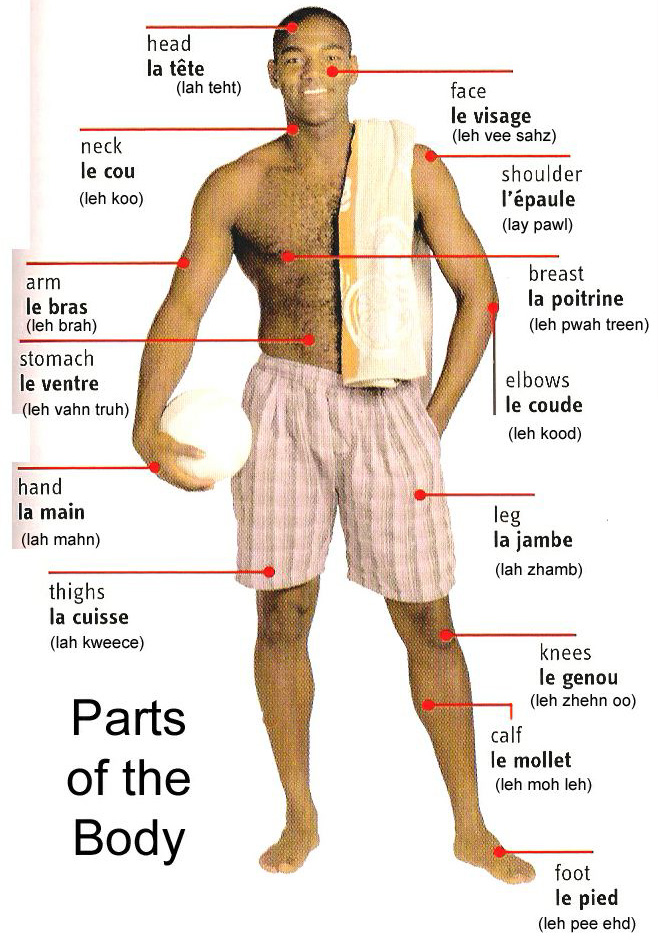
Let's Learn French Together Parts of the Body
Female (left) and male (right) adult human bodies photographed in ventral (above) and dorsal (below) perspectives. Naturally-occurring pubic, body, and facial hair has been deliberately removed to show anatomy.. The human body is the entire structure of a human being.It is composed of many different types of cells that together create tissues and subsequently organs and then organ systems.

PARTS OF THE BODY
Skeletal system The skeletal system is composed of bones and cartilages.There are two parts of the skeleton; axial and appendicular. The axial skeleton consists of the bones of the head and trunk.The appendicular skeleton consists of the bones within the limbs, as well as supporting pectoral and pelvic girdles.. There are 206 bones in an adult human body.
Body Parts Labelled diagram
Anatomy is the science of understanding the structure and the parts of living organisms. Physiology, on the other hand, deals with the internal mechanisms and the processes that work towards sustaining life. These can include biochemical and physical interactions between various factors and components in our body.

Human body part Interactive worksheet
Label the Body Parts Use this handy worksheet to help your little learner hone early reading and writing skills as they review and label parts of the body. Perfect for kindergartners or any young child who could benefit from extra reading and word recognition practice, this worksheet asks students to cut out words and match them to the correct.

FileHuman body parts diagram.jpg Wikimedia Commons
Anatomy is the science that studies the structure of the body. On this page, you'll find links to descriptions and pictures of the human body's parts and organ systems from head to toe.

Pin on Gift of Curiosity
human skeleton, the internal skeleton that serves as a framework for the body. This framework consists of many individual bones and cartilages.There also are bands of fibrous connective tissue—the ligaments and the tendons—in intimate relationship with the parts of the skeleton. This article is concerned primarily with the gross structure and the function of the skeleton of the normal.
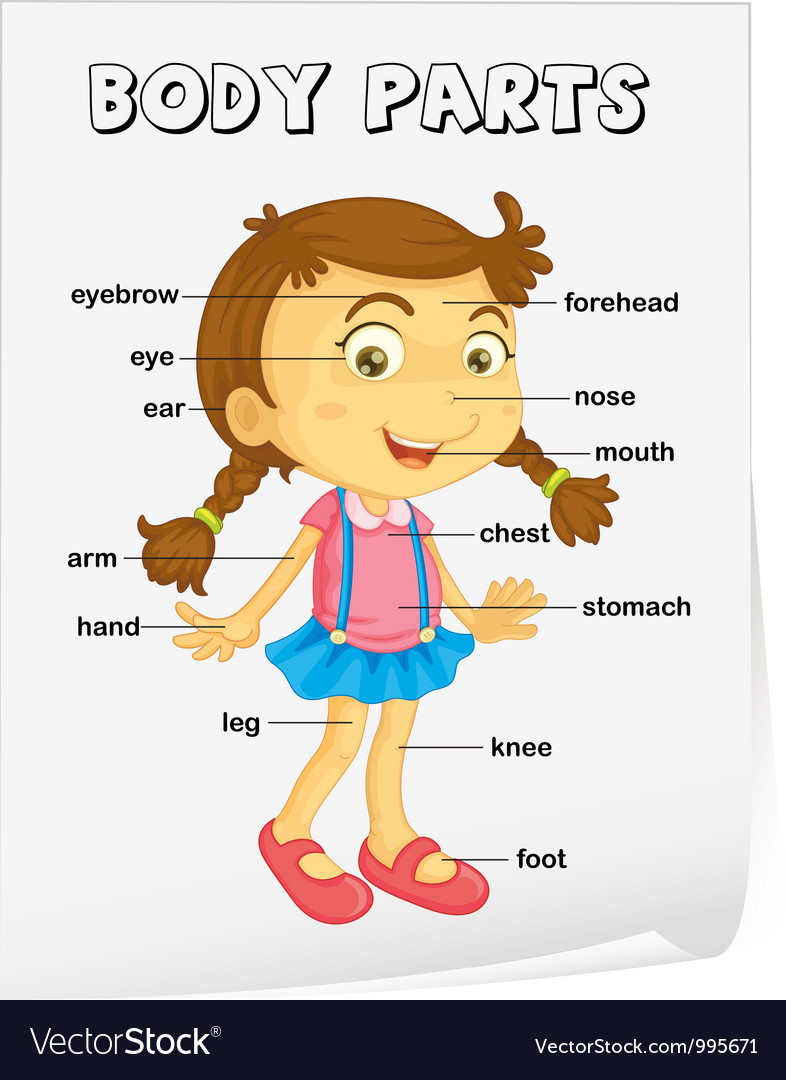
Body Parts Diagram / humanbodydiagram Tim's Printables
Female anatomy includes the external genitals, or the vulva, and the internal reproductive organs. This article looks at female body parts and their functions, and it provides an interactive diagram.
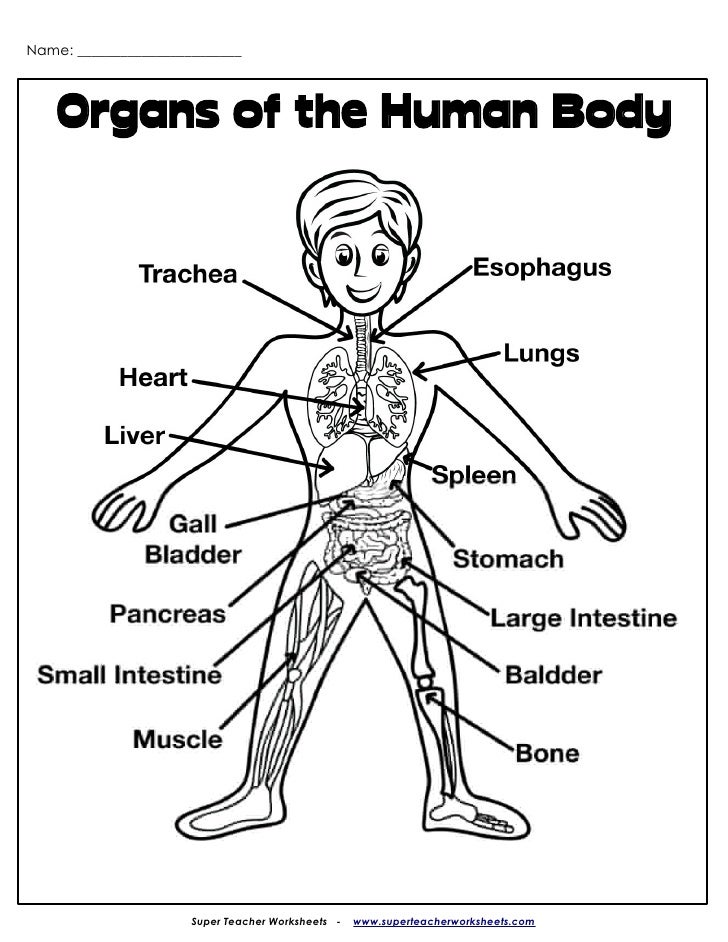
Organs picture
Summary. The five vital organs in the human body are the brain, heart, lungs, kidneys, and liver. Other organs include the gallbladder, pancreas, and stomach. Organ systems, such as the nervous.

Parts of the body Label Worksheet Zone
Labeled Parts Of The Body: A Comprehensive Guide to Understanding Human Anatomy. The human body is a complex and fascinating organism. Understanding its various parts and their functions is essential for anyone interested in healthcare, biology, or simply curious about how our bodies work. In this comprehensive guide, we will explore the.
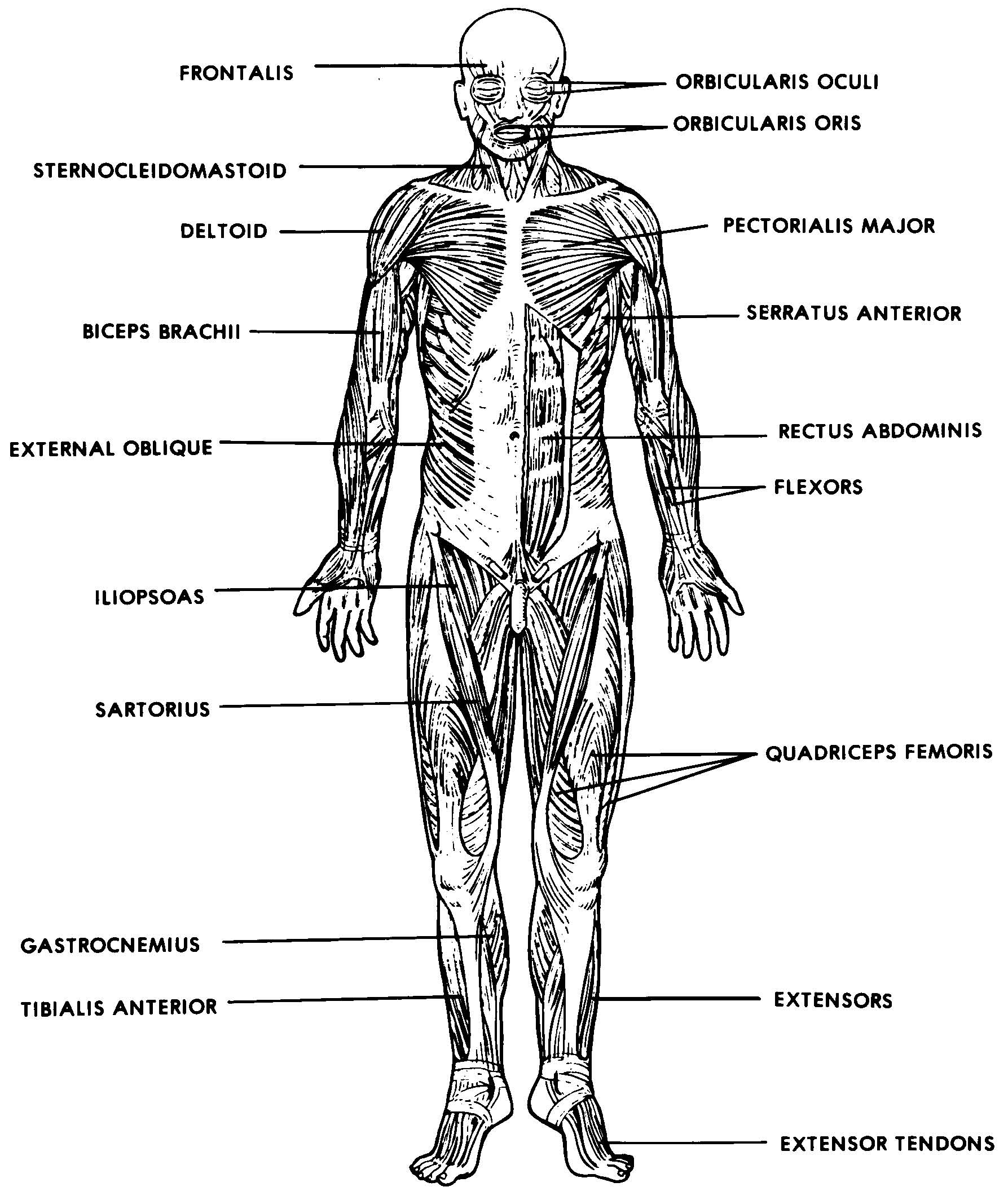
Images 05. Muscular System Basic Human Anatomy
Each day, the kidneys process about 200 quarts (50 gallons) of blood to filter out about 2 quarts of waste and water. Adults excrete about a quarter and a half (1.42 liters) of urine each day. The.
Front View of the Parts of the Human Body Labeled in English and Latin ClipArt ETC
Structures. Muscles. See also. v. t. e. This article contains a list of organs of the human body. A general consensus is widely believed to be 79 organs (this number goes up if you count each bone and muscle as an organ on their own, which is becoming more common practice to do [1] [2] ); however, there is no universal standard definition of.
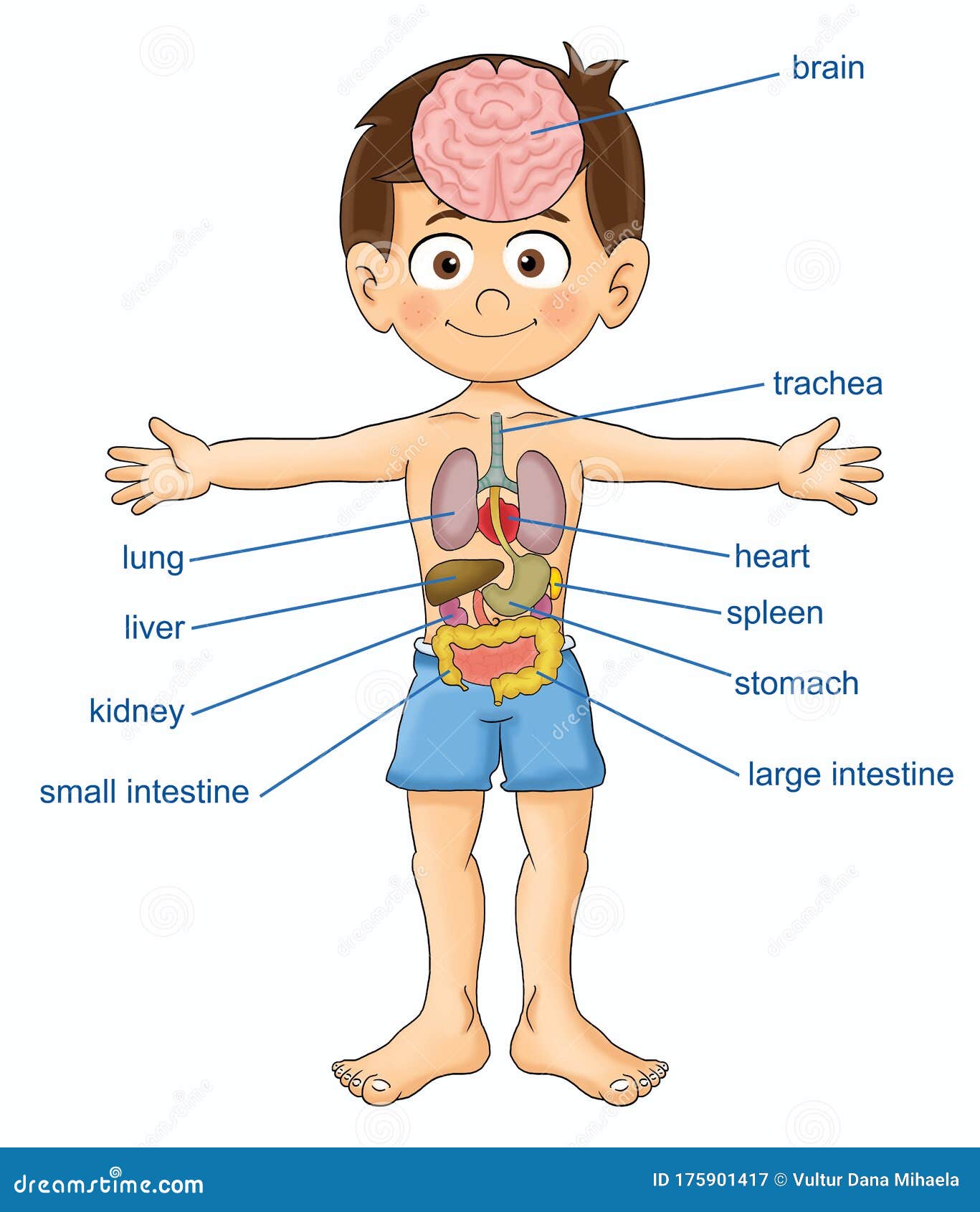
Body parts stock illustration. Illustration of spleen 175901417
The human body is the physical substance of the human organism. Characteristic of the vertebrate form, the human body has an internal skeleton with a backbone, and, as with the mammalian form, it has hair and mammary glands. Learn more about the composition, form, and physical adaptations of the human body.

Science 3º Primaria Pedro I Body parts and body organs
Click on the labels below to find out more about your organs. More human anatomy diagrams: nervous system, skeleton, front view of muscles, back view of muscles. Organise the organs in our.
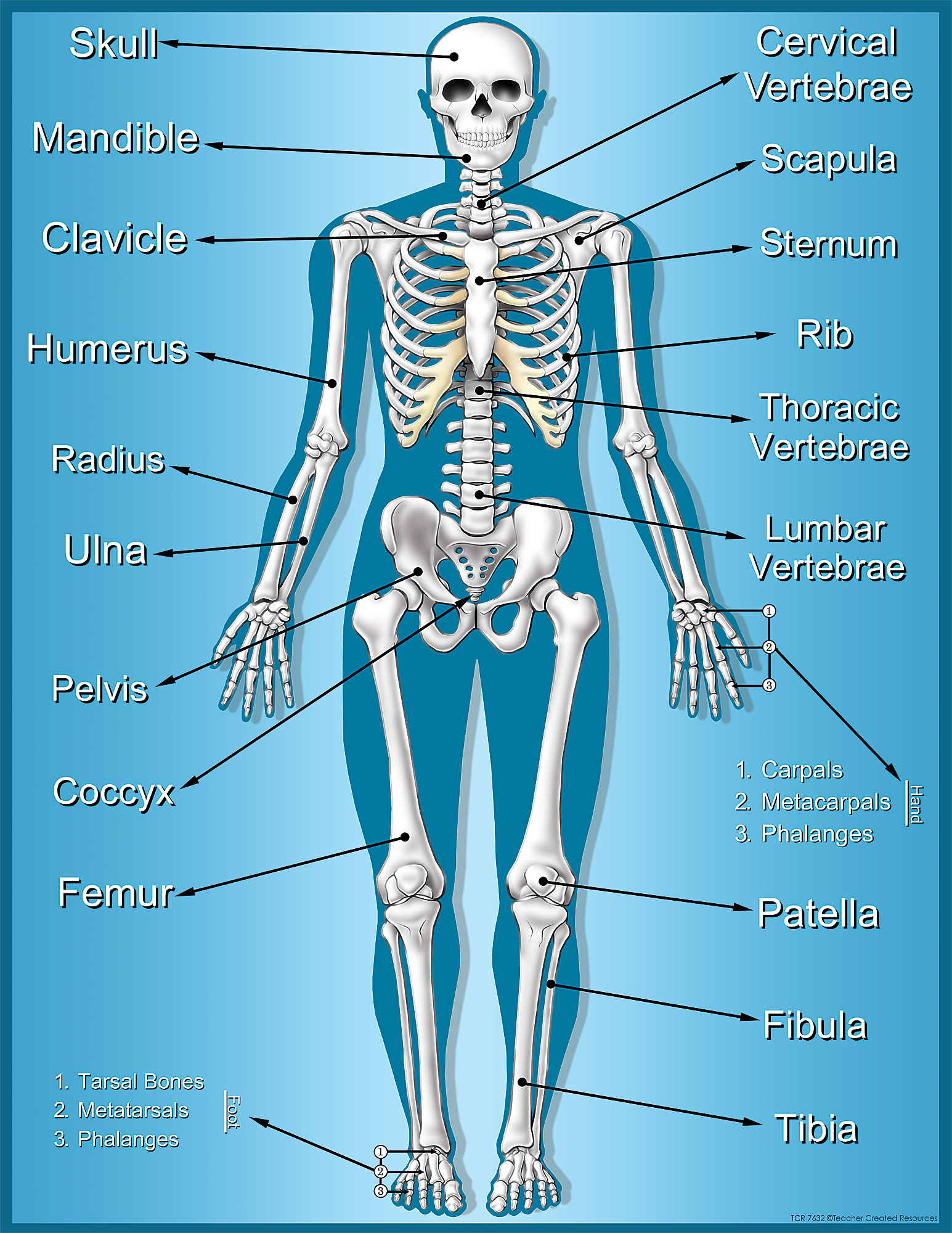
Skeleton Chart TCR7632 Teacher Created Resources
Get introduced to the major organ systems of the human body! You'll learn some general anatomy (a roadmap of your body), learn how the arm bone actually connects to the shoulder bone, and how the different organs work together to keep you alive.

Vocabs Shapes and Part's of Body
Nervous System The nervous system consists of the brain, spinal cord, sensory organs, and all of the nerves that connect these organs with the rest of the body. Respiratory System The respiratory system provides oxygen to the body's cells while removing carbon dioxide, a waste product that can be lethal if allowed to accumulate.
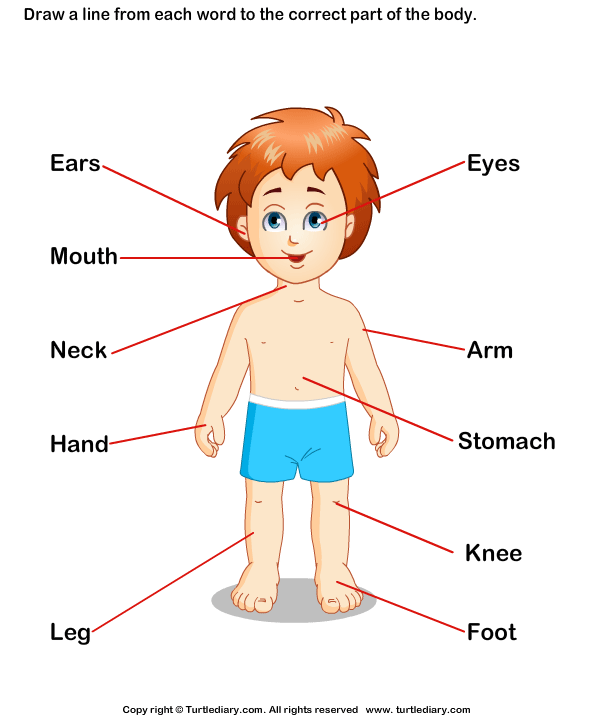
Body Parts for Kids Worksheet Turtle Diary
Figure 1.4.1 - Regions of the Human Body: The human body is shown in anatomical position in an (a) anterior view and a (b) posterior view. The regions of the body are labeled in boldface. A body that is lying down is described as either prone or supine.